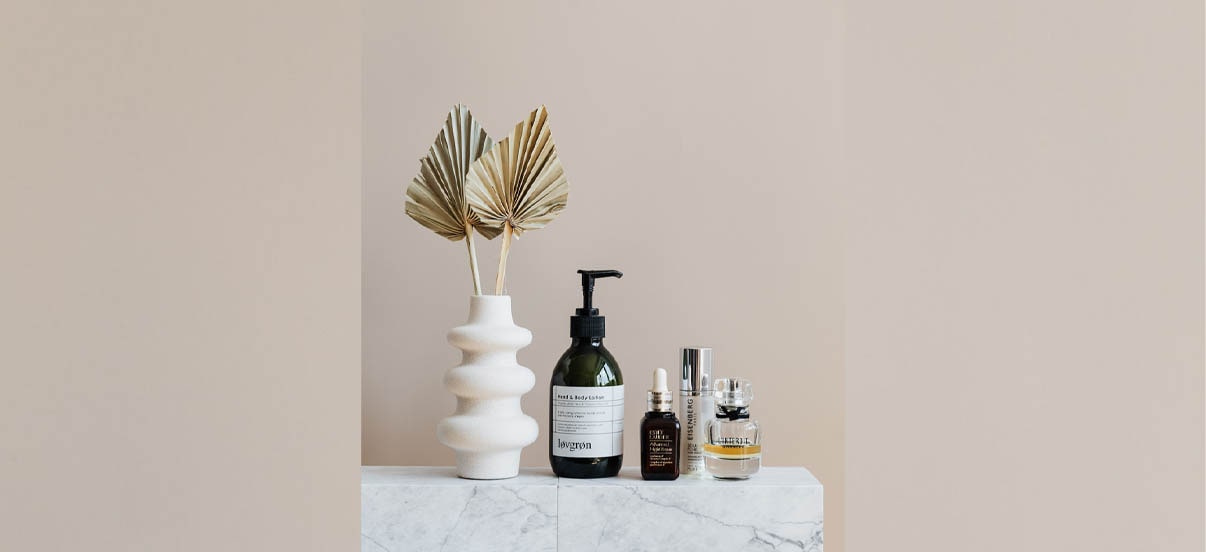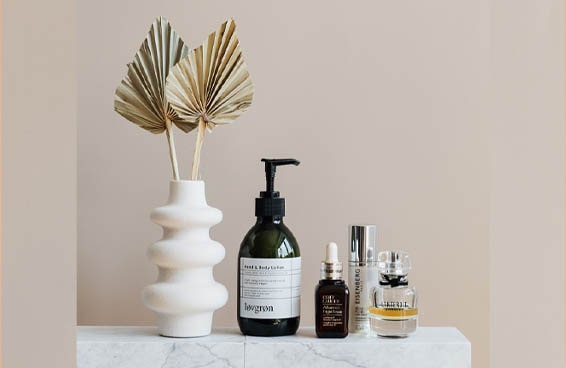

Why Scalp Care Matters? Effective Scalp Care Habits for All
Like any other part of your skin, the scalp needs to be protected. By developing some scalp care habits, you not only ensure your scalp health but also healthy and smooth hair. If you are a wig wearer, you have a sensitive scalp as a result of diseases or allergies, or even if you have a normal scalp, this article is for you.
Read on to learn the characteristics of a healthy scalp, some healthy habits for different scalp types, a few scalp care products and home remedies, and more.
Why Care about Your Scalp Health?
Whether you are a man or a woman, you are concerned about your facial skin or your hair. You spend money on skincare or haircare products to have a better-looking face and hair. You follow a skincare or haircare routine and even see a specialist every once in a while. But, how many of you have worried about your scalp health?
The scalp skin is the most important part to take care of if you want to have healthy clean-cut thick hair. This part of the skin is really delicate. It is mostly covered by hair, wigs, caps, etc., therefore, it is more likely to get frail and unwell. Besides, there are more sebaceous glands (glands that produce an oily substance to protect the skin), sweat glands, and many more (up to a million) hair follicles in the scalp compared with other parts of the skin. All these make scalp care indispensable.
Common Scalp Health Issues
There are many scalp problems and conditions, too many to name all of them here. Therefore, we will go over some of the most common ones. The causes of scalp problems are also varied. It can be anything from an allergic reaction to autoimmune disorders, infections, hormonal disorders, and so forth.
Androgenetic alopecia (male-pattern baldness)
It is a common genetic (or male sex hormones) problem that results in hair loss in both men and women. Men start to lose hair above the temples, but for women, it is mainly thinning of the hair. Long-term use of minoxidil topical solution can improve hair growth in many cases.
Alopecia areata
It is an autoimmune skin disease that leads to hair loss on the scalp (and other areas). Depending on the severity of the disease, the patients can lose up to 90% of their hair. For some patients, medication can help to limit hair loss.
Eczema
It can be genetic or an allergic reaction, and sometimes even happens without a specific reason. The symptoms include an itchy scalp, blisters, or thickened skin. To control the symptoms, one might need to use special shampoos and/or medication.
Infections
Different kinds of infection can affect the scalp, such as dandruff (in many cases it is a fungal infection), lice, and ringworm, which must be treated by medical procedures. Some infections, like ringworm, are also contagious.
Thyroid conditions
Any overactivity or under activity of the thyroid can result in hair loss. To regulate the level of the hormones and limit the symptoms, some effective medicines are prescribed.
Nutritional deficiencies
Lack of significant nutrients can lead to excessive hair shedding, such as protein and iron. Changing diet and taking supplements can most likely help with the condition.
For a full review of scalp problems and their causes see here.
Is Your Scalp Healthy?
To tell if your scalp is healthy or if you need to see a dermatologist, some red flags should not be ignored. Therefore, if you see any of the following signs, it means your scalp is not in tip-top shape.
- Itchy scalp
- dryness
- Any kind of irritation
- Flakes/dandruff
- Red spots
- Burning sensations
- Infections
- Excessive hair shedding/hair loss/hair thinning
- Bumps
- Extreme oiliness
- Sunburn
Depending on the severity of these signs, you may need medication or just a change of habits. That is why we are going to discuss a few scalp care habits to help you maintain or regain your healthy scalp.
Scalp Care Habits for Different Scalp Types
Your habits, even the most trivial ones that you usually ignore, such as the way you wash your hair, can affect your scalp and hair condition. You also need to pay attention to your scalp type and the products you use. Let’s discuss different scalp care habits for different scalp types (dry, oily, balanced, or sensitive).
How to Take Care of a Dry Scalp
A dry scalp comes usually with itchiness and flakes. It is also very dry when you touch it (no oil). The cause of scalp dryness can vary, but the most common reasons are the shampoo (or other hair care products), aging, the weather, and some skin issues. If the dry scalp is the result of some serious skin conditions, such as psoriasis or extreme sunburn, only a dermatologist can treat it. But, if the condition is mild, you can reduce the symptoms, or prevent them, by following the habits below.
- Change your shampoo to something gentler, preferably a moisturizing one.
- Frequent baths and showers are not suitable for a dry scalp. Do it less often.
- Stay hydrated.
- If the air is too dry, use a humidifier to add some moisture.
- Avoid smoking and high level of stress as they can lead to a dry itchy scalp.
Healthy Habits for an Oily Scalp
If you think only dry scalps are itchy, you are mistaken. An overactive oily scalp can cause itchiness, dandruff, and frequently greasy hair. This in turn can cause the pores to get clogged and lead to further complications. Again, causes of the oily scalp are varied, but it is most probably due to stress, lack of hygiene, hormones, oily and spicy diet, infections, and even your genes. Adding the following scalp care habits can reduce excessive scalp oil.
- To avoid the build-up of oil, wash your hair two or three times a week. It also prevents the pores from getting clogged.
- Choose a suitable shampoo, preferably a chemical-free one.
- Do not use hot water while showering.
- Message your scalp gently when shampooing.
- If you use a conditioner after the shower, make sure it does not contact your scalp (apply it at least two inches away from the hair roots).
- Replace spicy and oily food with green vegetables, and more notorious foods. Taking omega-3 tablets is also a good idea.
- Do not use hair dryers, straighteners, or curlers too often.
Taking Care of a Balanced Scalp
If you are lucky enough to enjoy a balanced normal scalp, you should try to keep it that way.
- Use standard high-quality hair products.
- Do not shower with very hot water.
- Wash your hair regularly, especially after heavy exercise.
- Wash your hair gently.
- Protect your scalp from sunburn.
- Never apply hair conditioners on the scalp.
- Have a healthy diet with omega-3 supplements.
Essential Scalp Care Habits for a Sensitive Scalp
A sensitive scalp can be the result of any of the scalp conditions mentioned above or a side effect of chemotherapy or other medications. It is especially necessary for alopecia and cancer patients to take care of their scalps. Follow the advice below to develop a few simple scalp care habits if you have a sensitive scalp.
- Wear a medical wig (cranial prosthesis), especially if your scalp is sensitive as a result of alopecia, chemotherapy, severe thyroid problems, and trichotillomania. Wearing a hair system not only boosts your confidence but also prevents your scalp from further irritation, such as air pollution, sunlight, dry weather, etc. (Check out our human hair wigs for sensitive scalps here.)
- Make sure the wig you get is a medical wig, not a regular one. Medical wigs are specially designed for sensitive scalps. To learn more see this page.
- If you do not wear a wig, wear a hat to protect your scalp.
- Do not wash your scalp very often.
- Use a very gentle shampoo with organic ingredients, preferably a moisturizing one to soothe the scalp. Make sure it does not contain alcohol. Usually, baby shampoos are a good choice.
- Those undergoing chemotherapy should use shampoos without alcohol, parabens, methylparaben, sodium lauryl sulfate, phenoxyethanol, and fragrance.
- Moisturize your scalp.
Scalp Care for Wig Wearers
As wigs are tightly fitted on the scalp, they may reduce the blood flow in that area, which is vital for the well-being of the skin and the hair. The blood brings the nutrition necessary for healing the scalp and its hair. If you use hair systems, whether human hair wigs or synthetic ones, these tips are beneficial in protecting your natural hair and scalp.
- Make sure your natural hair and scalp are clean before wearing wigs.
- Do not go to bed with your hair system if possible. Your hair and scalp need fresh air.
- Keep your scalp hydrated.
- To increase blood flow, massage your scalp. You can use a few natural oils, such as almond, coconut, or jojoba to soothe it.
- If you have a sensitive scalp, use wig caps underneath.
- Keep your wig cap and the wig clean.
- Do not use just any hair systems. Real hair wigs, especially custom-designed ones, are less irritating.
- Try lighter wigs that are easier to fix on the scalp.
Some Home Remedies for a Healthier Scalp
To maintain your hair and scalp health, there are things you can do at home without going through a lot of trouble. Just make sure the ingredients are organic and sanitary, and you are not allergic to them.
- To hydrate your scalp, apply a combination of caster oil (1 tablespoon), aloe vera gel (2 tablespoons), and tea tree oil (five drops). Leave in for half an hour, then shampoo.
- To nourish your scalp, you can use different kinds of masks and leave-ins, such as aloe vera, cooling yogurt, green tea, coconut oil, and tea tree oil.
- To limit the symptoms of a dry scalp, some natural oils can be of use, for example, tea tree oil, coconut oil, olive oil, avocado oil, and jojoba oil. A combination of yogurt and egg (or honey) has also been proven effective for some people with dry hair and scalp.
New Port Hair Loss Center Is Here to Help
Our center is one of the best when it comes to making medical wigs, custom-designed hair systems, human hair wigs, and hair care products. Our experts are professional in crafting cancer wigs and alopecia wigs by considering each patient’s specific needs and conditions. We also custom-design human hair wigs for men, women, and kids.
Give us a call in Los Angelos (at 310-991-0087), Orange County (at 949-640-4247), and New Port (at 949-322-9555) for a free consultation.
LA OFFICE
Beverly Hills
8383 Wilshire Blvd, First Floor
Los Angeles, CA 90211
ORANGE COUNTY OFFICE
NEWPORT BEACH
240 Newport Center Drive, Suite 111
Newport Beach, CA 92660
SAN DIEGO OFFICE
LA JOLLA
4660 La Jolla Village Dr. Suite100
San Diego, CA 92122
NEWPORT HAIR LOSS CENTER
Newport Hair Loss Center gives hair loss sufferers a way to restore their appearance and boost their confidence, whether they are suffering from trichotillomania, alopecia, or are currently going through chemotherapy.
Site Map

